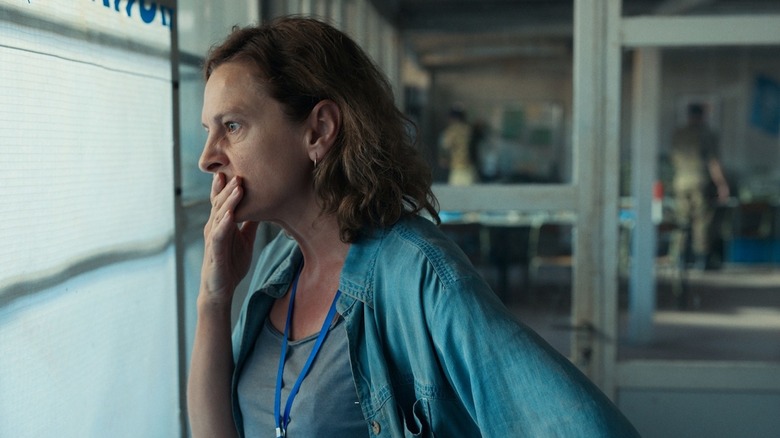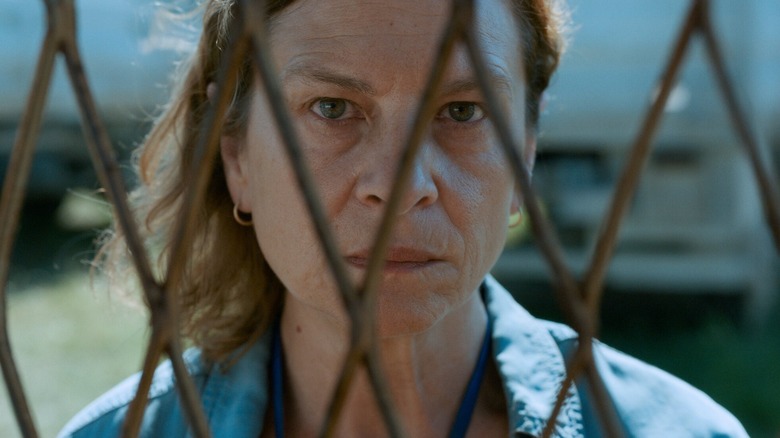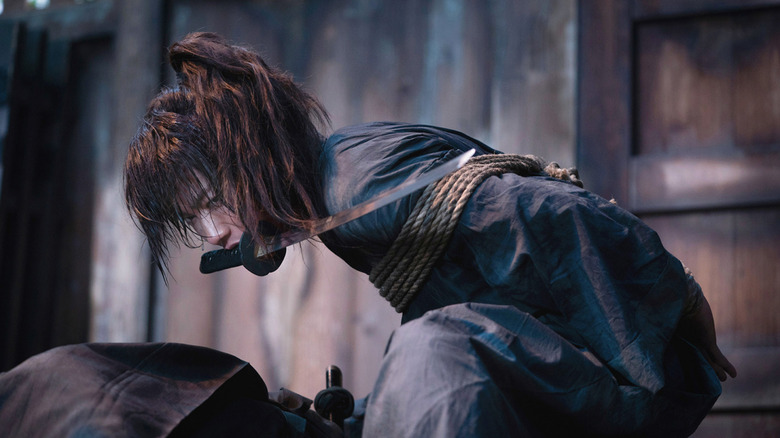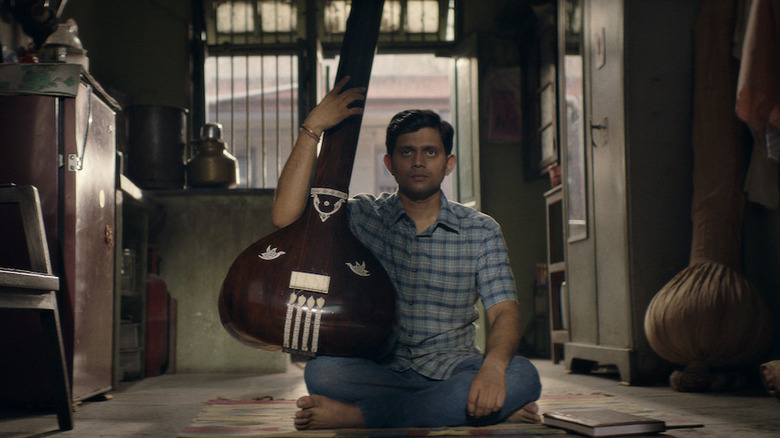Pop Culture Imports: The Best Foreign-Language Movies You Might Have Missed In 2021
2021 is winding down, which means that in between gorging on all the holiday leftovers, you've been playing catch-up with all the best movies of the year. But there might have been a few foreign-language gems that slipped your notice. Never fear, Pop Culture Imports is here to keep you informed and keep you educated on all the subtitled fare you might've missed. From devastating Oscar nominees to awesome samurai movies, here are some of the best foreign-language movies that you might've missed this year, that are available to stream now.
Fire up those subtitles and let's get streaming.
The Hand of God – Netflix
Country: Italy
Genre: Autobiographical drama
Director: Paolo Sorrentino
Cast: Filippo Scotti, Toni Servillo, Teresa Saponangelo, Marlon Joubert, Luisa Ranieri, Renato Carpentieri, Massimiliano Gallo, Betti Pedrazzi, Biagio Manna, Ciro Capano.
Oh great, another "lyrical" autobiographical drama in which an auteur looks back on his life through a nostalgic (often black-and-white) camera lens and finds some deeper meaning in the sociopolitical context in which he was raised. Or, oh great, it's "Call Me By Your Name," but straight. But Paolo Sorrentino's "The Hand of God" is more than the sum of its parts. Part memoir, part coming-of-age neorealist drama, part Gothic comedy, "The Hand of God" is Sorrentino's intensely personal story of finding solace in the beautiful fantasy of filmmaking after tragedy strikes his family. "Reality is lousy," the teenage Fabietto (played by a wonderfully guileless Filippo Scotti) bemoans, quoting the great Fellini in the process. "That's why I want to make films." But reality never appears lousy, even in its darkest moments in "The Hand of God," which paints a surreal, ravishing portrait of Naples, and of Sorrentino's own strange, bewitching childhood.
Watch This If You Like: "Roma," "Call Me By Your Name," aggressively gesturing in Italian.
Quo vadis, Aida? – Hulu
Country: Bosnia
Genre: War drama
Director: Jasmila Žbanic
Cast: Jasna Duricic, Izudin Bajrovic, Boris Isakovic, Johan Heldenbergh, Raymond Thiry, Emir Hadžihafizbegovic.
Last year's Bosnian Oscar nominee for Best International Feature is a clear-eyed and compassionate look at the tolls of war, which interestingly approaches a sadly well-trod genre through bureaucracy. Because the main villain of "Quo vadis, Aida?" aren't the ruthless Serbian forces or faceless soldiers, it's red tape. Taking place in the days before the 1995 Srebrenica massacre, in which a small Bosnian town is invaded by aggressing Serbian forces, "Quo vadis, Aida?" follows UN translator and former schoolteacher Aida Selmanagic (Jasna Duricic) as she tries to save her family from the approaching forces, which have caused thousands of refugees from the town to crowd in and around UN headquarters. There's a helplessness to "Quo vadis, Aida?" which seeps into every frantic frame, as Aida scrambles to protect her family while learning that the UN's hands are tied. It's awful and devastating, less for the violence (of which there's little) depicted onscreen, but for how easy it is for everything to go so horribly wrong.
Watch This If You Like: Being devastated.
Rurouni Kenshin: The Beginning – Netflix
Country: Japan
Genre: Samurai romance drama
Director: Keishi Ohtomo
Cast: Takeru Satoh, Kasumi Arimura, Issey Takahashi, Nijiro Murakami, Masanobu Ando, Kazuki Kitamura, Yosuke Eguchi.
Hollywood has been trying so hard to adapt anime into live-action feature films that they haven't realized that Japan has already released the best one. The classic samurai manga "Rurouni Kenshin" was adapted into a trilogy of films directed by Keishi Otomo that were released between 2012 and 2014, adapting all but the final arc from Nobuhiro Watsuki's manga. Now, seven years later, Otomo and the original cast return to finish the job with two films: "Rurouni Kenshin: The Final" and "Rurouni Kenshin: The Beginning." But I'm only going to feature the latter (which, despite being a prequel, is the last film in this series) because its tragic romance set to the backdrop of a wartorn country transcends any kind of "anime adaptation" label that many might stick on it. Takeru Satoh continues to be pitch-perfect as Himura Kenshin, an assassin for the revolutionaries who want to overthrow the Tokugawa shogunate, and falls in love with a woman Yukishiro Tomoe (Kasumi Arimura), who melts his icy exterior. You don't need to know where Kenshin will end up — as a wandering ronin who refuses to kill — to know that the two are ultimately doomed, or to appreciate the frankly stunning and artfully choreographed film that is "The Beginning."
Watch This If You Like: "Rurouni Kenshin," samurais and tragic romance.
The Disciple – Netflix
Country: India
Genre: Drama
Director: Chaitanya Tamhane
Cast: Chaitanya Tamhane, Aditya Modak, Arun Dravid, Sumitra Bhave, Deepika Bhide Bhagwat.
What makes the difference between a protégé and a prodigy? That's what Sharad Nerulkar, the title character of "The Disciple" played by first-time actor Aditya Modak, struggles to overcome in Chaitanya Tamhane's delicate exploration of spirituality and devotion to one's craft. A trance-like drama that follows Sharad over the years as he aspires to become a great musician of classical Indian music — unlike his failed father and guru before him — while seeking the purity of spirit that he thinks is essential to mastering the art. But as the years trudge on by, and his peers enjoy more success than him, he starts to question his puritanical approach to music.
Watch This If You Like: Curiously enough, "Soul."
Undine – Hulu
Country: Germany
Genre: Fantasy-romance
Director: Christian Petzold
Cast: Paula Beer, Franz Rogowski, Maryam Zaree
Director Christian Petzold teams up with his "Transit" stars Paula Beer and Franz Rogowski once again for a contemporary spin on an old folk tale: that of the undine, an ancient water nymph that lacks only one thing — a soul. To gain that soul, an undine must marry a human being, rendering them mortal but delivering unto them an immortal human soul. Beer plays the title character, a perpetually lovelorn woman named Undine with piercing eyes, who warns her latest lover that if he breaks up with her, she would have to kill him. It sounds like the kind of desperate plea that any heartbroken woman would say to her dismissive lover, and Petzold plays up the soap of it in his most overtly melodramatic film yet. But slowly, moments of magical realism start to seep in: a shattered aquarium, a woman kidnapped by a giant catfish, an impossible phone call. "Undine" gradually unfolds from a sweet romance film into a dark, mythic melodrama.
Watch This If You Like: "The Little Mermaid," but dark.





